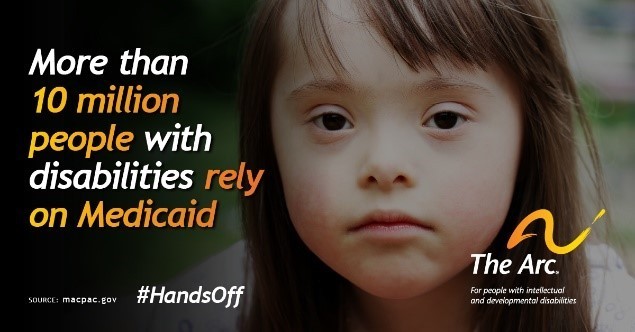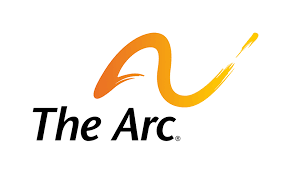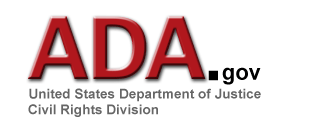| Be Informed. Be Heard. VOTE. To help ensure that our elected representatives understand the issues affecting people with developmental disabilities, and to give our community a chance to hear directly from Candidates on the topics important to you, we are hosting a series of events designed to engage Candidates with their constituents. Be Informed. Core Public Policy Platform – Adopted by our Membership at this year’s annual meeting in July of 2019. Stories from People with Developmental Disabilities and their Families – Watch our Facebook Page and YouTube Channel for weekly stories leading up to the Elections. To share your story, contact info@thearcofva.org. Candid Candidates Video Series – HEAR directly from the Candidates as they are invited to share their perspectives on the Disability System in Virginia with short videos that we will publish on our Facebook and Youtube Channel. Be Heard Candidate Forums – Take part in one of the Candidate Forums across the State, and share your questions with candidates about what matters to you most. To see if there is a Forum in your area click here. Post Election Candidate Education – Following elections, we will host educational meetings with elected members, particularly focusing on areas where the Delegate or senator is newly elected or were not in an area where a Forum was held. VOTE – November 5th is Election Day for all 140 Seats of the Virginia General Assembly. Find your Candidates for VA General Assembly HERE. The Arc of Virginia is a 501(c)3 non profit organization, and does NOT endorse, support or promote any Party or Candidates. All Candidates running in Virginia were invited to share their views on Disability through these various opportunities. Reminders & Updates Are You on the DD Waiver Wait List? The Individual and Family Support Program (IFSP) is designed to assist individuals on the Developmental Disability(DD) Waiver Wait List and their families to access short-term, person/family centered resources, supports and services. These services and items funded through the IFSP are intended to support the individual in their own or family home in the community. Individuals may submit applications to apply for IFSP from Oct. 1 @ 9:00 am until Oct. 11, 2019 @ 5:00 pm. Applicants may be prepared now by creating and saving a draft application. This is a first come first served program so do not delay. For more information and how to apply go to: https://tinyurl.com/yxwwvfnw. Electronic Visit Verification – Transition Period Announced In case you haven’t heard, Virginia is implementing Electronic Visit Verification(EVV) for Medicaid Waiver attendants and Employers of Record(EOR) who provide personal/attendant care, respite and companion services. EVV is a technology system to verify that an attendant/caregiver provides services by clocking in and clocking out of their shift. Attendants and EORs need to prepare now if they haven’t already for this new system that is required so that attendants will be paid. The EVV system is required in order for attendants to be paid effective January 1, 2020. The VA Dept. of Medical Assistance Service will have a transition period for EVV from10.1 -12.31.19 to allow providers additional time to come into compliance with the EVV requirements. During this transition period agency directed providers and consumer directed attendants will continue to be reimbursed for services that do not meet EVV compliance. For claims submitted on or after January 1, 2020, EVV will be required and reimbursement will be denied for services not compliant with EVV requirements. *Please read the Medicaid Bulletin issued on Sept. 25 here and get prepared now. The EVV system is required in order for attendants to be paid effective January 1, 2020. Training Opportunities Medicaid Waiver Workshops for You Medicaid Waivers are a lifeline for many people with developmental disabilities. The Arc ofVirginia will be presenting Medicaid Waiver workshops in October in Prince William County and Roanoke. To learn more about these free presentations and how to register click here. October is National Disability Employment Awareness Month October is National Disability Employment Awareness Month, and all members of The Arcoof Virginia are encouraged to participate. The purpose of National Disability Employment Awareness Month is to educate about disability employment issues and celebrate the many and varied contributions of America’s workers with disabilities. Held annually, National Disability Employment Awareness Month is led by the U.S. Department of Labor’s Office of Disability Employment Policy, but its true spirit lies in the many observances held at the grassroots level across the nation every year. Employers of all sizes and in all industries are encouraged to participate in NDEAM. For specific ideas about how you can support National Disability Employment Awareness Month, visit www.dol.gov/NDEAM. Suggestions range from simple, such as putting up a poster, to comprehensive, such as implementing a disability education program. Regardless, all play an important part in fostering a more inclusive workforce, one where every person is recognized for his or her abilities — every day of every month. In the next edition of The Insider… Stay Tuned to find out! |
A Key Medicaid Protection Is at Stake
Every day, Medicaid supports millions of people with disabilities to live independently in their community.
However, the Centers for Medicare and Medicaid Services (CMS) is proposing to significantly weaken an existing rule that makes sure that Medicaid reimbursement rates are enough to allow people to access services and supports that they need.

Background: If reimbursement rates are below costs, providers will not want to participate or will not be able to provide high quality services. This means that people will not be served or will be put on waiting lists. Inadequate reimbursement rates can also mean low wages and high turnover rates for direct support professionals (DSPs). The work of DSPs is invaluable to the disability community and the service system that relies on their abilities to keep people out of institutions. You can learn more about the proposed rule here.
We must tell CMS that it should expand and improve – not weaken – the current rule, so that no one will have to go without services and supports. CMS needs to hear from individuals with disabilities, parents, family members, advocates, and service providers that this is a critical issue!
There is still time to send a message to CMS. They will be accepting comments until September 13. That means we only have two days to send in as many comments as possible to stop the rule from being implemented and ask CMS to strengthen the existing rule.
Fill in your information here and you will be brought to a page with draft comments that you can personalize and submit directly to CMS.
Thank you for your advocacy!
29 Years of the Americans with Disabilities Act
The Disability Rights Section (DRS) celebrates and commemorates the 29th anniversary of the signing of the Americans with Disabilities Act. DRS, along with our partners across the Civil Rights Division and in U.S. Attorneys’ Offices across the country, works diligently every day to advance the ADA’s goals. We are immensely grateful for the tremendous impact the ADA has made in the lives of Americans with disabilities over the last 29 years. We look forward to continuing our work to ensure that the ADA’s promise of equal opportunity, full participation, independent living, and economic self-sufficiency for people with disabilities is fulfilled.
The Capitol Insider for the Week of July 29, 2019
Major Recent Events
Autism: House Approves Autism CARES Act Reauthorization
On July 24, the House of Representatives approved the Autism Collaboration, Accountability, Research, Education, and Support (CARES) Act of 2019 (H.R.1058, as amended). The Autism CARES Act funds autism research, surveillance, and education programs at the National Institutes of Health (NIH), Centers for Disease Control and Prevention (CDC), and Health Resources and Services Administration (HRSA), respectively. The Arc supports this legislation, which must next be approved by the Senate by September 30 in order to avoid expiration of the work done by the CDC and HRSA.
Family Support: House Approves Lifespan Respite Reauthorization
On July 24, the House of Representatives approved the Lifespan Respite Care Reauthorization Act of 2019 (H.R.2035). The Lifespan Respite Care Program, through grants to states, helps build coordinated state lifespan respite systems, helps family caregivers pay for respite or find funding sources, encourages development of new and innovative community and faith based respite opportunities, and trains respite workers and volunteers. The Arc supports this bill, which must next be approved by the Senate.
Social Security: House Committee Holds Hearing on Social Security Financing Bill
On July 25, the House Ways and Means Committee held a hearing on the Social Security 2100 Act (H.R.860). The bill would make Social Security benefits more adequate by providing a modest across-the-board increase, improving annual cost of living adjustments, and increasing the minimum Social Security benefit to 25 percent above the federal poverty line. Additionally, it would create a single Social Security Trust Fund to simplify Social Security’s operations and ensure that Social Security is able to pay full scheduled benefits for the next 75 years through modest enhancements to revenues. The Arc strongly supports the Social Security 2100 Act. Testimony from the hearing is available on the committee website.
Income Support: The Administration Proposes Cutting Food Assistance for 3.1 Million
On July 24, the Administration issued a notice of proposed rulemaking that would cut current eligibility for Supplemental Nutrition Assistance Program (SNAP). For the past 20 years, states have had flexibility to adjust SNAP eligibility to reflect local and state dynamics and to help low-income people to avoid a SNAP benefit cliff. Unfortunately, this proposal would eliminate that flexibility and cut off SNAP benefits for 3.1 million individuals. This change will also eliminate eligibility for free school meals for the children in those families. SNAP provides food assistances that helps approximately 11 million people with disabilities. The Arc strongly opposes the changes in the proposed rule. Watch The Arc’s video on the importance of SNAP.
Tax/Rights: Representatives Re-Introduce Bill to Improve ADA Compliance for 29th Anniversary
Last week, in conjunction with the 29th anniversary of the signing of the Americans with Disabilities Act (ADA), Representatives Donald McEachin (D-VA) and Jim Langevin (D-RI) and Senators Tammy Duckworth (D-IL) and Bob Casey (D-PA) re-introduced the Disabled Access Credit Expansion Act (H.R.4045/S.2290). This bill will double the Disabled Access Credit (DAC) and increase the number of businesses eligible for it. The DAC is a tax credit for small businesses that make renovations to make their facilities accessible. Additionally, the bill increases funding for the voluntary ADA Mediation Program in the Department of Justice and requires data collection and reporting on the types of calls received by the ADA Information Line.
Announcements
Education: USCCR Releases Report on School to Prison Pipeline
On July 23, the United States Commission on Civil Rights (USCCR) released a report titled “Beyond Suspensions: Examining School Discipline Policies and Connections to the School-to-Prison Pipeline for Students of Color with Disabilities.” The report notes that students of color and students with disabilities are disproportionately subjected to suspension. Additionally, it notes that few empirical studies have evaluated the intersection of race and disability when it comes to discipline. Recommendations include continued guidance and enforcement from the Department of Education’s Office of Civil Rights (OCR) and Congressional appropriations to help states and school districts train and support teachers and provide an adequate number of counselors and social workers in all schools.
Miscellaneous News: Registration Open for The Arc’s National Convention Are you ready to join advocates from all over the country? Registration is officially open for The Arc’s 2019 National Convention in Washington, DC. Whether you’re a professional looking to develop skills, a person with I/DD or family member trying to expand your advocacy and support network, or an ally interested in getting more involved in the disability community, we have a program that will speak to you! You’ll connect with other passionate advocates from across the country and learn how to navigate and work to improve employment, education, housing, technology, criminal justice, and more. Register today!
The Capitol Insider for the Week of May 27
Major Recent Events
Child Welfare & Adoption: House Passes CAPTA Reauthorization
On May 20, the House passed the Stronger Child Abuse Prevention and Treatment Act (H.R.2480). This bill reauthorizes the Child Abuse Prevention and Treatment Act (CAPTA), which provides federal funding to states to address child abuse and neglect. This bill increases investments to address child maltreatment resulting from the opioid epidemic. Learn more about the legislation here.
Health/Rights: HHS Proposes Weakening Health Care Anti-Discrimination Rule
On May 24, the Department of Health and Human Services (HHS) released an advance copy of a proposed rule to weaken its regulations implementing Section 1557 of the Affordable Care Act (ACA). Section 1557 prohibits discrimination on the basis of race, color, national origin, sex, age, or disability in health programs and activities receiving federal financial assistance. The proposed rule would narrow protections for all people experiencing discrimination under the law, eliminate protections for LGBTQ people, and roll back protections for people with limited English proficiency, among other impacts. The Arc is reviewing the proposed rule and will provide further analysis.
Housing: HUD Proposes Ban on Housing Assistance for Mixed Status Families
On May 10, the U.S. Department of Housing and Urban Development (HUD) proposed a rule that would prohibit “mixed status” immigrant families from living in public housing and Section 8 units. “Mixed status” families are families in which some members are ineligible for housing assistance based on immigration status. The rule would result in family separations and could lead to evictions of thousands of people, including children, who face an increased risk of homelessness. The Arc is working with the Consortium for Citizens with Disabilities (CCD) to submit comments on the proposed rule by the July 9 deadline. For more information, see www.keep-families-together.org.


